Beethovenfest 2019
electronic ID @ Beethovenfest 2019
Beil / Cerrone / Scime / Liftinger
A concert of sound and light: the context of the Beethovenfest, especially in the glass Posttower Lounge, offers the opportunity to engage with works thematically related to Beethoven's music and to adapt them to one's own style.
Ensemble electronic ID // 2019 // sound direction - Lucia Kilger // Sound-Light-Installation - Dawid Liftinger // Posttower, Bonn
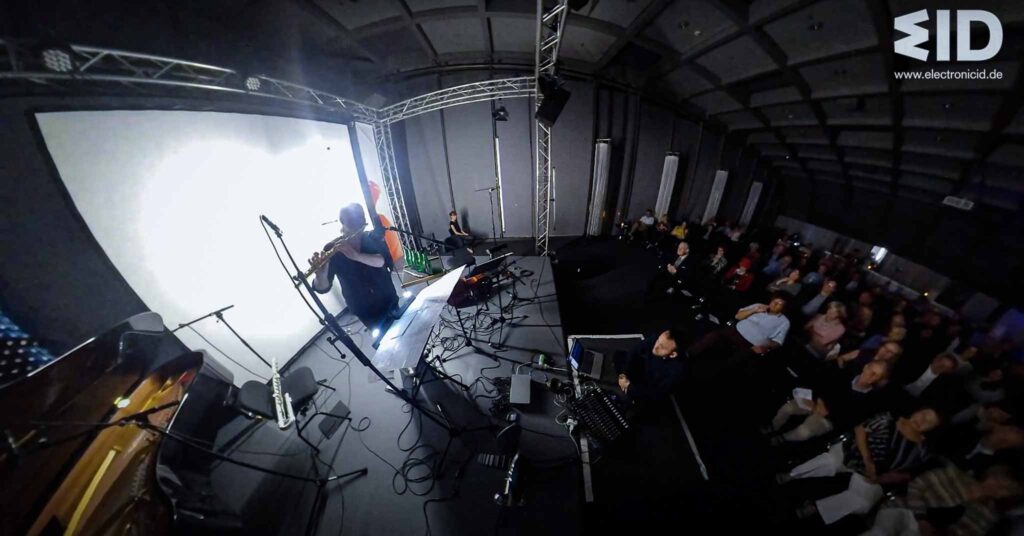
Michael Beil: “Die Zwei” (2004), according to Beethoven op. 135/3
“Die Zwei” prepares from the basis of Beethoven’s op. 135/3, using means of superimposition and electronic enhancement, a mesh of sonic and visual alienation in which the live performance blurs with the pre-produced content.
Christopher Cerrone: “On Being Wrong” (2015) for cello and electronics (backing tracks created by Ashley Bathgate)
“On being wrong” was part of a commission for composers to work with Bach’s famous cello suites. The result is an ancient form of compositional technique in a contemporary context.
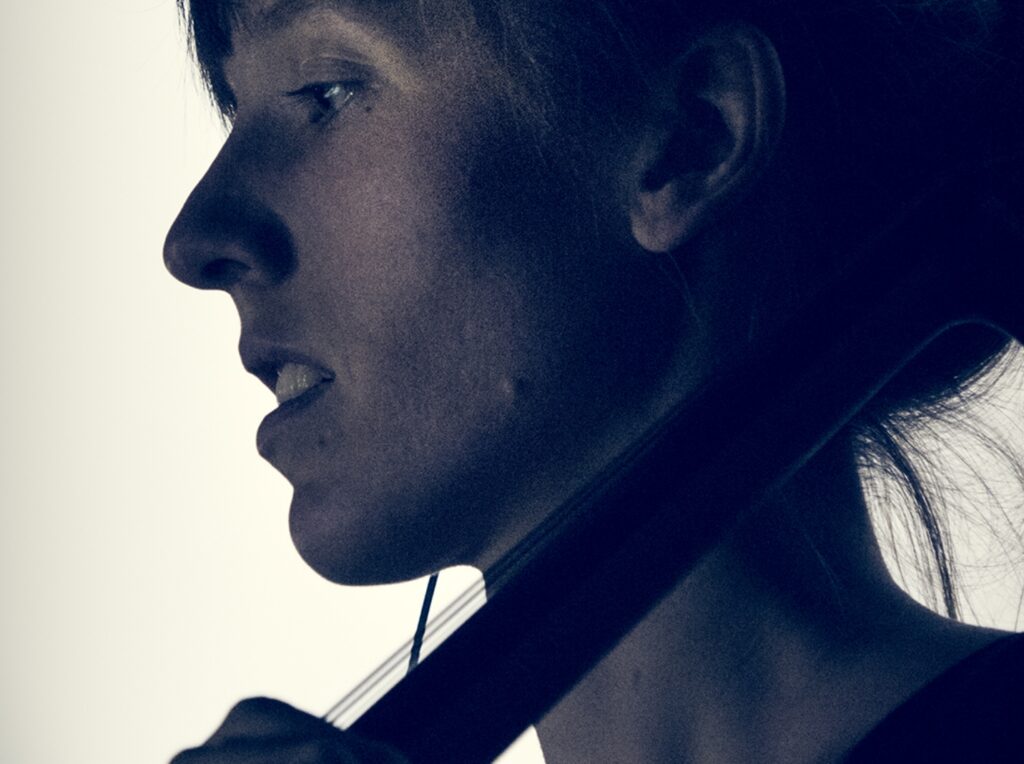
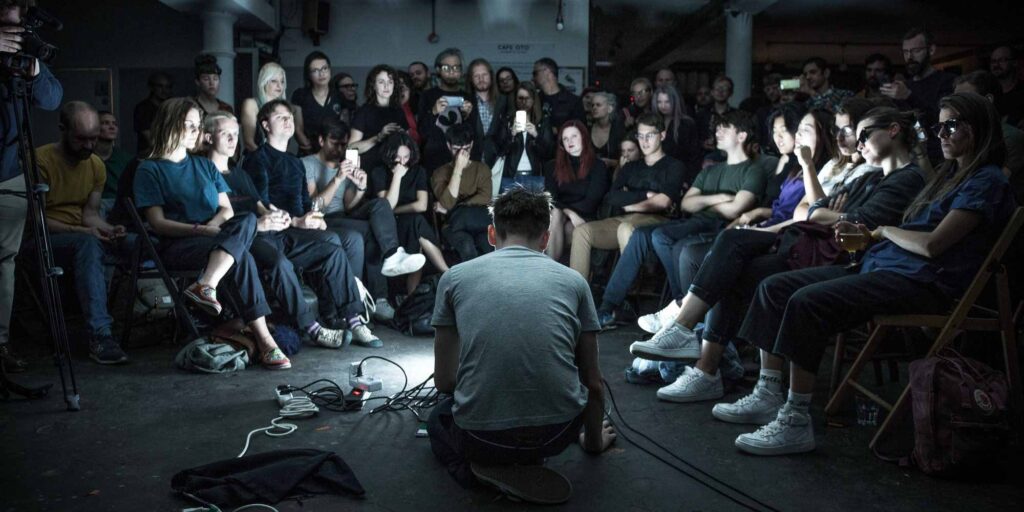
Dawid Liftinger: Klang-Lichtperformance
Dawid Liftinger: “In my work I explore sensory and synaesthetic states with the help of (self-made) electronics. I use the essential properties of light and sound across installations and performances. I take the two-dimensional image and bring it into the three-dimensional space. I see my artistic practice in the tradition of Expanded Cinema. Tony Conrad’s ‘The Flicker’, Paul Sharit’s ‘Shutter Interface’ or Brion Gyson’s ‘Dreamachine’ are works that have shaped me. On a visual level, I experiment with flicker or with full colors, with simple shapes and clear movements. The sound in my work is often characterized by noise, deep bass and drastic highs. I combine these elements and play with subjective and cognitive perception.”
On a visual level, I experiment with flicker or with full colors, with simple shapes and clear movements. The sound in my work is often characterized by noise, deep bass and drastic highs. I combine these elements and play with subjective and cognitive perception.
Dawid Liftinger
Christopher Cerrone: “Hoyt-Schermerhorn” (2010) for piano and live electronics
The composer describes the piece: “Hoyt-Schermerhorn is a tribute to the New York nightscape. Named after a Brooklyn subway station where I’ve spent many a night waiting for the train, the piece explores the myriad and contradictory feelings that often overtake me late at night in my adopted hometown – nostalgia, fear, joy, panic.”
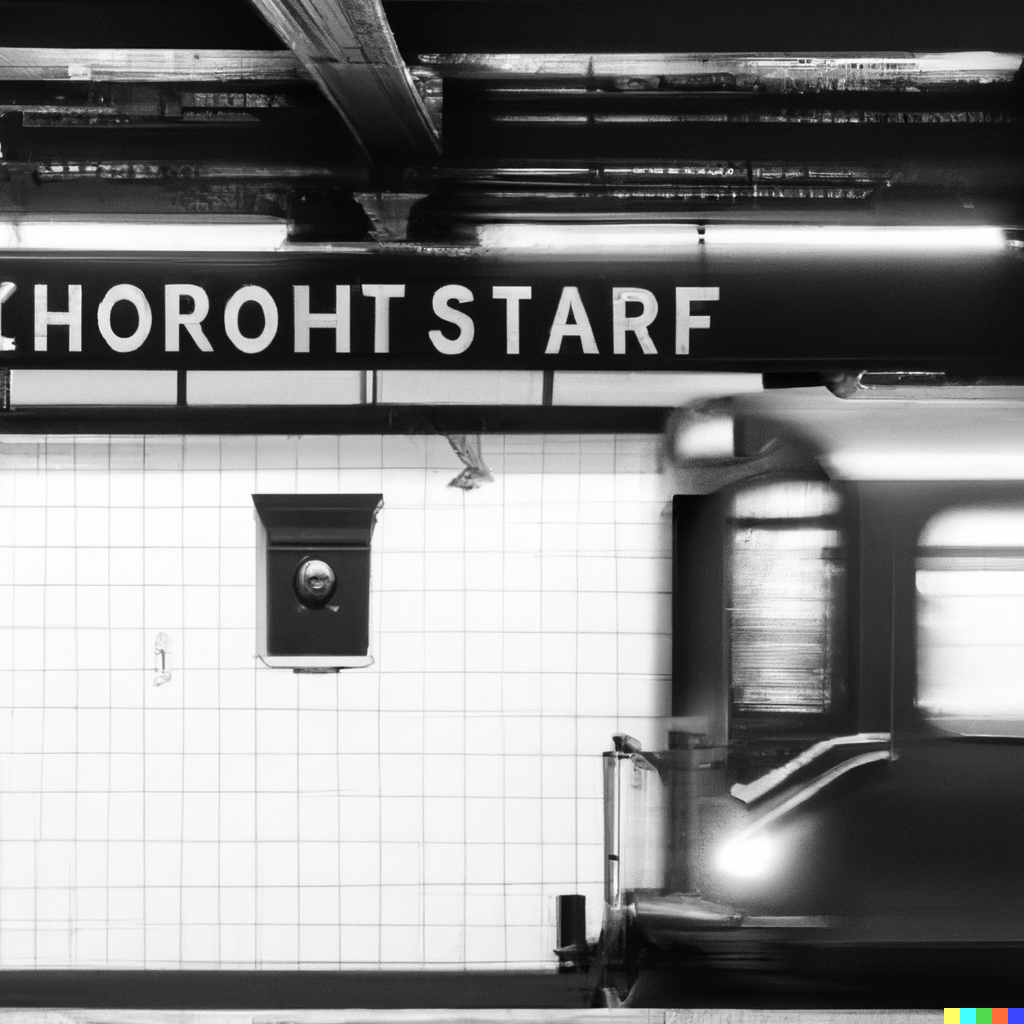
Adam Scime: “Corona” (2011) for flute, cello and playback
A piece for flute, cello and electronics, inspired in 2011 by the phenomenon of the corona, a plasma ring that can surround a planet under special circumstances (before the other “corona” occupied the world).
Christopher Cerrone: “Liminal Highway” (2016) for flute and electronics
Liminal Highway works via electroacostic delays and reverb. The performer plays a series of pre-recorded samples that blend seamlessly into the live performance. In addition, the flute is guided through some very simple electronic processing, revealing an almost symphonic variety of sonic developments.
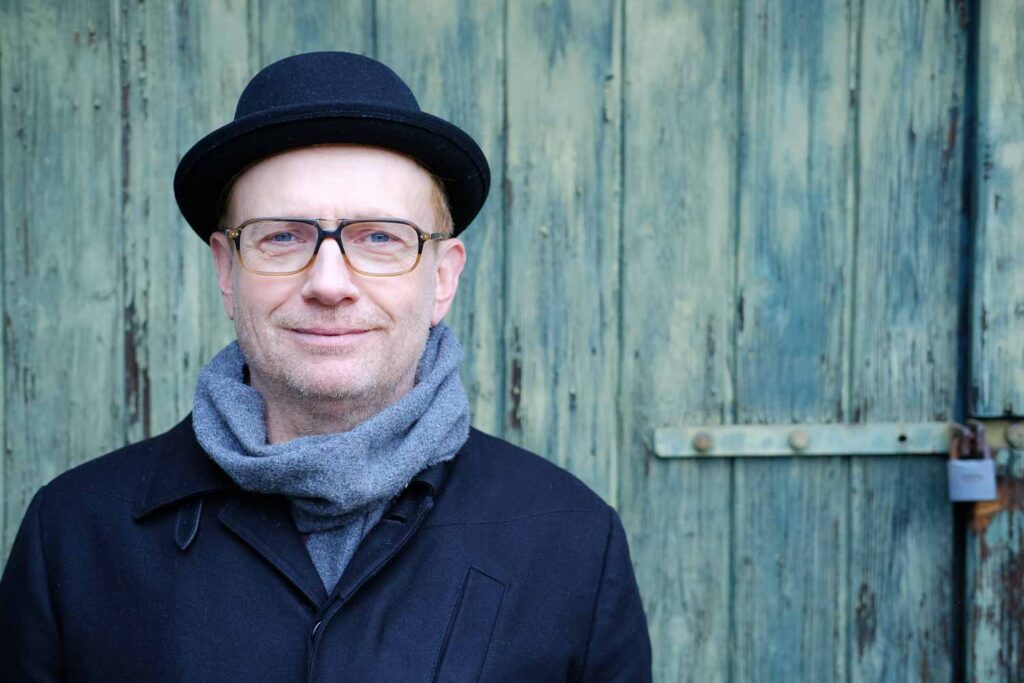
Michael Beil
Michael Beil studied piano, music theory and composition in Stuttgart. From 1996 he taught music theory and composition in Berlin as head of the departments for new music and study preparation at the music schools in Kreuzberg and Neukölln.
In 2000 Michael Beil founded the group Skart together with Stephan Winkler for the conception of concerts with intermedial content and organized a series of Skart concerts between 2000 and 2007. During this time Michael Beil also took over the artistic direction of the festival Klangwerkstatt. In addition to numerous commissions, Michael Beil received an award in the Camillo Togni composition competition in Brescia, scholarships for the Cité des Arts in Paris, for the Künstlerhaus Wiepersdorf and the Heinrich-Gartentor scholarship for video art in Thun. In 2007 Michael Beil was appointed professor for electronic composition at the Hochschule für Musik und Tanz Köln, where he heads the Studio for Electronic Music.
Christopher Cerrone
Christopher Cerrone (b. 1984, Huntington, NY) is a composer of dramatic, orchestral, chamber music and electronic music. He has been called a “rising star” (The New Yorker) and “dangerously talented” (The New Haven Advocate). The New York Times described Cerrone’s music as “skillful and spare” and a “highlight of the program.” Cerrone is a founding member and co-artistic director of Red Light New Music and is a member of the Sleeping Giant composer collective.
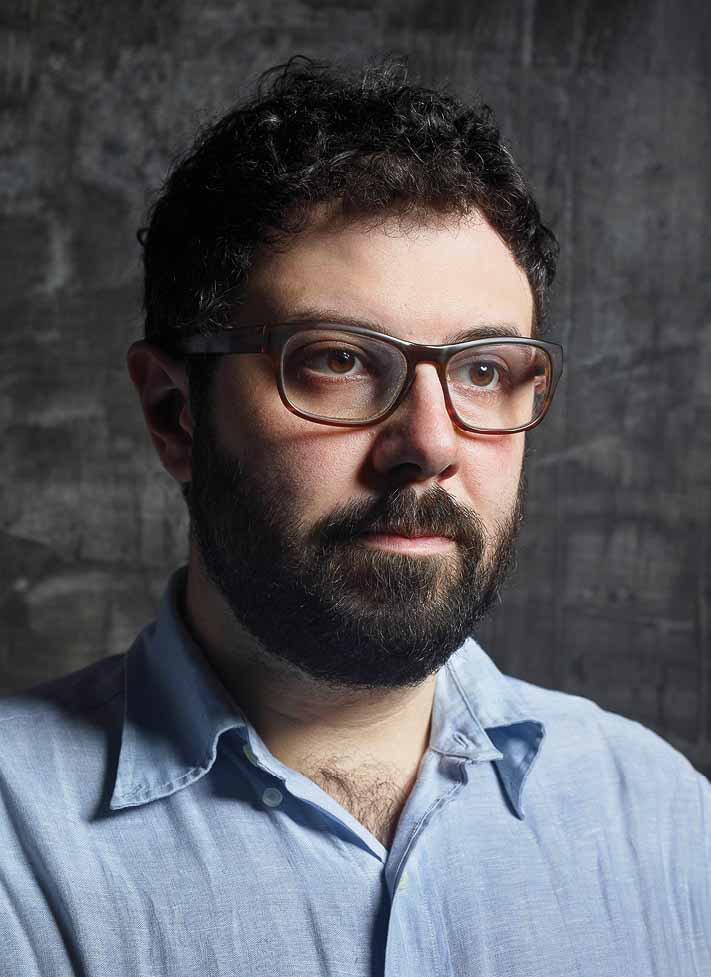
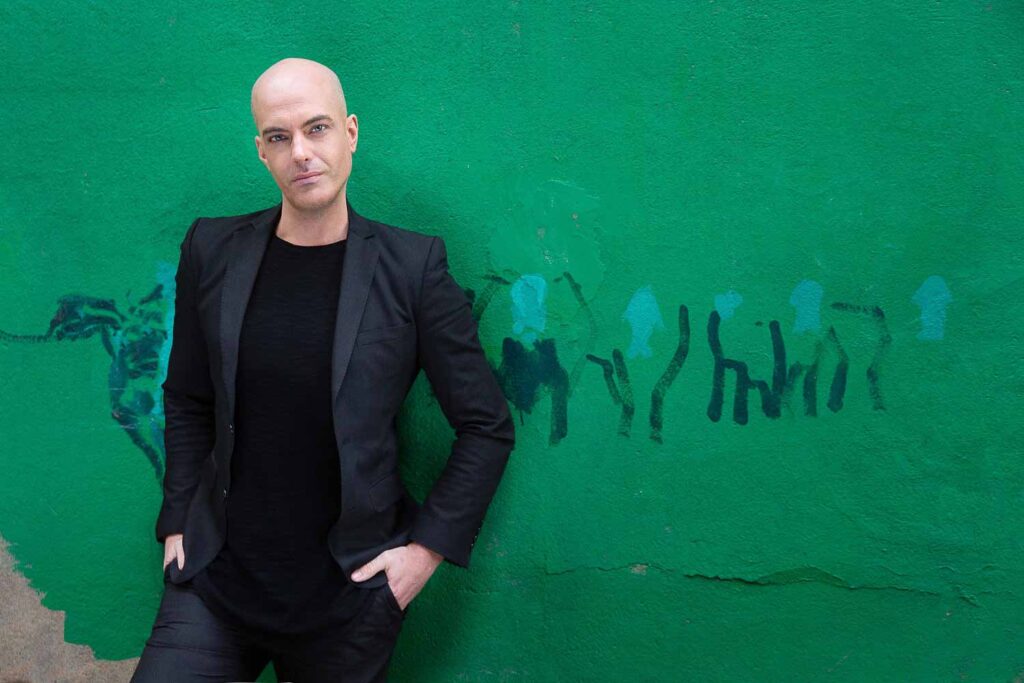
Adam Scime
Toronto-based young composer and performer Adam Scime has been praised as a “fantastic success” (CBC) and “Amazing, the musical result was remarkable” (icareifyoulisten.com). Adam’s work is widely known for its coloristic explorations and innovative sonic experiments. His work has won numerous awards, including the 2015 CMC Toronto Emerging Composer Award, the Socan Young Composer Competition, the Karen Keiser Prize in Canadian Music, the Esprit Young Composer Competition, and first prize in the 2018 Land’s End Composer Competition.
